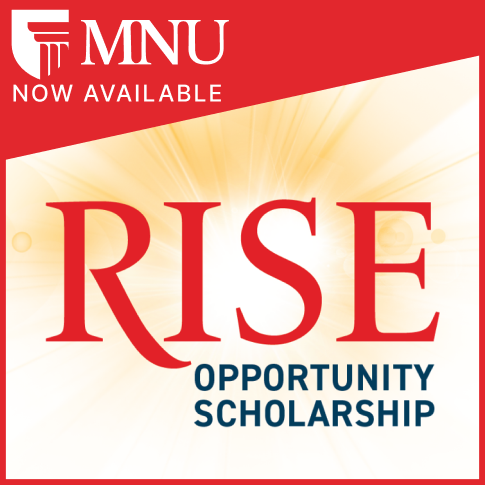Graduate Programs
Master of Science in Educational Technology
Contacts for
more information
Admissions Counselors
Courses
MS in Educational Technology - Course Descriptions (33 Hours)
This course is introductory to the MS in Educational Technology degree program which presents the International Society for Technology in Education Standards for Teachers (ISTE) as a framework for this degree program. It introduces candidates to the field of educational technology and academic writing. We will address ISTE Standard 4 for Teachers during this course. This Seminar course will introduce academic writing style and APA research paper format.
This course addresses productivity tools that teachers will use to increase efficiency in their classrooms and encourage professional development growth. These tools include, but are not limited to web tools, apps, and appropriate software. Candidates reflect on their own growth as teachers to use technology – enhanced instruction and collaborative learning. As part of their professional development, candidates will prepare a presentation of a project using a wiki.
This course considers the many aspects of technology-enhanced environments and the management strategies that contribute to a positive classroom environment and help facilitate access to technology. Candidates learn considerations for creating appropriate learning activities for students to become 21st Century learners. Candidates develop skills to identify and integrate new technologies for their classrooms. They develop lesson plans using multiple strategies for locations and supporting their technology resources to meet the diverse and specialized needs of students. Candidates reflect and collaborate through blogging to further develop their understanding of weekly topics and share ideas on technology use in the classroom environment.
This course introduces candidates to the blended/hybrid learning environment. Course content covers its foundations, pedagogy, methodology, the social and ethical issues of acquiring and implementing high-quality resources, and technology operations and concepts. The course aligns to the National Educational Technology Standards for Teachers (NETS-T). Course content examines the role and best practices for different types of delivery systems, specifically to blended educational settings.
This course assists candidates in understanding the role of educational technology in the teaching and learning process. To be relevant to students, teachers must embrace the potential of emerging technologies that rely on new professional development models and teacher leadership capabilities. The course utilizes case studies to track the most effective ways to incorporate a wide variety of digital tools including learning management systems, social media, digital storytelling, visual learning tools and collaboration/communication tools. Candidates investigate and learn about different kinds of hardware and software classroom configurations ranging from classrooms using one computer to Bring Your Own Device (BYOD) to 1:1 computers to cloud-based solutions. Tablet apps are fully integrated through all units with candidates producing multiple products that can be immediately applied within their own teaching context. Candidates will, through self-analysis and a guided-independent study, learn a professional development model where they define and map out professional learning needs and develop effective ways of blending the local (within their own school & district) learning with the global environment (online communities of practice).
This course assists candidates in understanding the role of educational technology in the teaching and learning process. To be relevant to students, teachers must embrace the potential of emerging technologies that rely on new professional development models and teacher leadership capabilities. The course utilizes case studies to track the most effective ways to incorporate a wide variety of digital tools including learning management systems, social media, digital storytelling, visual learning tools, and collaboration/communication tools. Candidates investigate and learn about different kinds of hardware and software classroom configurations ranging from classrooms using one computer to Bring Your Own Device (BYOD) to 1:1 computers to cloud-based solutions. Tablet apps are fully integrated through all units with candidates producing multiple products that can be immediately applied within their own teaching context. Candidates will, through self-analysis and a guided-independent study, learn a professional development model where they define and map out professional learning needs and develop effective ways of blending the local (within their own school & district) learning with the global environment (online communities of practice).
This course prepares students for designing online courses that engage the learners. Students will learn how to create activities for student engagement, design pedagogically sound instruction, and think creatively about online learning. At the end of the course, students will have skills to be able to support and advise their own colleagues in online learning.
A worldview is a developed lens through which a person perceives the world in which they live. Ethical decisions are a part of the daily life of an educator. This course seeks to guide candidates through various ethical positions and worldviews that may affect the learning environment encountered in the 21st century classroom.
The purpose of this course is to present the principles, historical, theory, rationale, and processes of the action research method. Aspects of this model are compared to traditional research methods. Graduate students learn that action research promotes professional practice. Through discussion and literature reviews, they determine an area of focus and prepare to conduct in-depth, specialized, classroom-based inquiry.
This purpose of this course is to facilitate professional growth through classroom-based action research. Course content covers methods of data analysis, interpretation of results, and promotes the benefits of sharing and reflection in learning communities. Graduate candidates learn how to represent their raw data, report the results, and develop action plans. They produce a professional report using APA style guidelines and the writing process approach. Action research projects are designed to showcase graduate students’ professional dispositions and leadership skills.
This course presents the concept of leadership and describes various leadership models and approaches, focusing on the Servant Leadership model. Candidates consider how leadership principles apply to their own professional development and roles in learning communities. They examine leadership dynamics in relationship to personality characteristics, effective team¬ functioning, problem solving, and conflict management.
